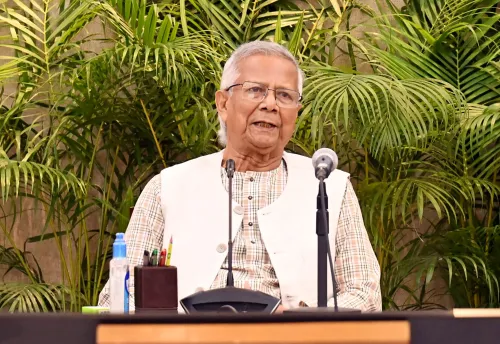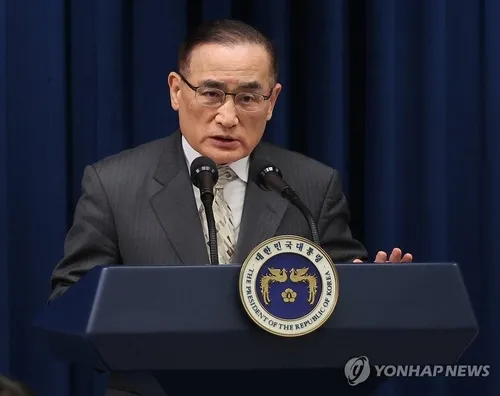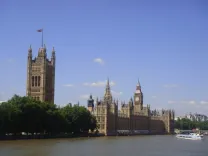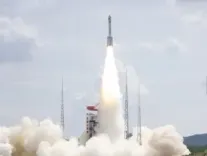Is Pakistan Playing a Dangerous Game by Wooing Trump at China's Expense?

Synopsis
Key Takeaways
- Pakistan's military is pivoting towards the U.S.
- This could jeopardize its relationship with China.
- Recent military actions in Afghanistan are strategic.
- Short-term gains may come at a long-term cost.
- Geopolitical dynamics are shifting rapidly.
London, Oct 22 (NationPress) Within the secretive realms of Rawalpindi, Pakistan's military hierarchy is once again engaging in its well-practiced geopolitical maneuvering. This time, however, it appears to be pivoting towards the United States while seemingly sidelining its “all-weather ally,” China.
In recent months, a series of gestures from Islamabad to Washington indicate a desperate attempt to reclaim its significance in the Trump-dominated global landscape. From cryptocurrency and mineral partnerships to the symbolic act of nominating Donald Trump for the Nobel Peace Prize, Pakistan's military leadership seems poised to stake its future on a revived alliance with the U.S., even at the expense of alienating Beijing.
For a nation whose military leaders previously declared their allegiance to China as “higher than the Himalayas and deeper than the sea,” this sudden shift is quite remarkable. This change is unsurprising given Pakistan’s historical inclination towards transactional diplomacy in pursuit of financial aid, legitimacy, and strategic support.
What sets this situation apart is that, amid the intense rivalry between Beijing and Washington, Pakistan’s overt alignment with one may lead to unintended consequences.
The overtures from Pakistan began shortly after Donald Trump’s second inauguration in January 2025. Within weeks, the Pakistan Army detained and transferred a key ISIS-K operative, Mohammad Sharifullah, who was implicated in the August 26, 2021, Abbey Gate bombing at Kabul airport, which resulted in the deaths of 13 U.S. service members and about 170 Afghan civilians.
The timing of Sharifullah’s capture was clearly strategic. This act was a signal from Asim Munir, head of the Pakistani military, to President Trump, indicating that Islamabad is ready to be a regional ally once again.
This gesture paid off as Trump publicly expressed gratitude to Islamabad and suggested a “new era” in U.S.-Pakistan relations. Following that, a series of meticulously planned gestures occurred. In June, Asim Munir made a historic visit to the White House for a formal luncheon with President Trump, a privilege typically reserved for heads of state.
Days after this meeting, Pakistan's National Assembly made a rather peculiar move by nominating President Trump for the Nobel Peace Prize.
This nomination coincided with the U.S. joining Israel in military actions against Iran, targeting its nuclear facilities. Shortly thereafter, Islamabad inked a “strategic minerals partnership” granting U.S. companies access to rare earth minerals in Balochistan, previously dominated by Chinese firms.
The warming relations between Islamabad and Washington are unlikely to go unnoticed in Beijing. For nearly a decade, China has been Pakistan's primary ally, investing billions through the China-Pakistan Economic Corridor (CPEC) and receiving exclusive rights to extract Balochistan's wealth.
Therefore, inviting the U.S. into this domain suggests that Pakistan is auctioning off its loyalties to whoever offers the best deal.
However, the most provocative indication of this geopolitical shift is not merely in these agreements but in Pakistan's recent military actions in Afghanistan.
On October 9, Pakistan executed targeted strikes in Kabul and Khost against Noor Wali Mehsud of the Tehreek-e-Taliban Pakistan (TTP). This escalation led to a significant military conflict between Pakistani and Afghan forces on October 11/12, resulting in numerous casualties on both sides of the Durand Line.
While Islamabad's claims of retaliating against cross-border militancy lack credibility, underlying motives tied to the shifting dynamics between Washington, Beijing, and Islamabad are evident.
Notably, just before the Afghan-Pakistan border clashes, President Trump publicly urged the Taliban to surrender the Bagram Airbase—Afghanistan's largest military installation—to U.S. forces, arguing it was crucial for maintaining a “regional presence” against China and Iran.
For over two decades of American involvement in Afghanistan, Bagram symbolized not only military utility but also geopolitical leverage. For Pakistan's military, adept at “creating facts on the ground,” these airstrikes presented a chance to re-establish themselves as essential partners for a potential U.S. return to Afghanistan—a role they enjoyed during the Cold War and the War on Terror, which brought immense unaccounted funds.
The airstrikes also conveyed a subtle warning that Pakistan could destabilize Afghanistan if its strategic significance is overlooked. Thus, the attacks were less about combating the TTP, a group Islamabad has historically tolerated and negotiated with, and more about signaling to Washington that Pakistan remains pivotal to Afghanistan’s future. This maneuver aligns with the military establishment’s long-standing strategy of utilizing instability to regain relevance.
However, this approach risks jeopardizing China's growing economic interests in both Afghanistan and Pakistan. Since the U.S. withdrawal in 2021, Beijing has gradually increased its presence and sought to involve Afghanistan in the Belt and Road Initiative, while securing access to its vast mineral wealth.
In August, the Taliban government reached agreements with China to extract essential resources like copper, lithium, and rare earth elements critical for China's green technology and manufacturing sectors.
Beijing has also viewed Afghanistan as a vital buffer to safeguard its western provinces, especially Xinjiang, and the transit routes under CPEC.
Thus, Pakistan's airstrikes did more than escalate tensions with Kabul; they also threatened to destabilize China's delicate investments and undermine its influence in a region where it has painstakingly built trust with the Taliban. For a nation that has invested billions into Pakistan's infrastructure, energy, and mining sectors, this rising volatility is deeply concerning.
It should not be surprising for Beijing to perceive that Pakistan's military establishment is again reevaluating its position as Washington's frontline ally, even at the risk of Chinese economic interests.
Furthermore, Islamabad's recent signing of a new cryptocurrency regulation and trade framework with American firms, aimed at facilitating digital transactions linked to resource agreements, underscores Pakistan’s elite's intent to align their financial interests with U.S. capital instead of Chinese state financing.
Consequently, early signs of strain between Beijing and Islamabad are emerging. Beijing has discreetly halted some funding tranches under CPEC, citing “regulatory uncertainties” and ongoing security concerns following a series of attacks on Chinese personnel in Balochistan and Khyber Pakhtunkhwa last year.
This gradual erosion of trust not only indicates a diplomatic rift but also signifies a structural shift in Pakistan’s foreign policy away from Beijing and towards Washington.
Ironically, China has been Pakistan's most reliable benefactor, investing over $60 billion in CPEC, supplying military hardware, and providing diplomatic cover against international isolation.
Yet for the generals in Rawalpindi, immediate political and economic gains outweigh strategic consistency. The elite's reasoning is straightforward: a few high-profile deals with the U.S. and a symbolic acknowledgment from the White House can yield legitimacy, financial aid, and perhaps a temporary respite from Pakistan's escalating economic crisis.
Nevertheless, while Pakistan’s establishment may believe it is cleverly navigating great power dynamics, history suggests otherwise. As it courts Washington with resources and insurgents, it may soon realize that in an increasingly polarized world, there is little space for a nation attempting to straddle both sides. The implications of this latest gamble could jeopardize not only China's trust but also Pakistan's last remaining strategic leverage.










